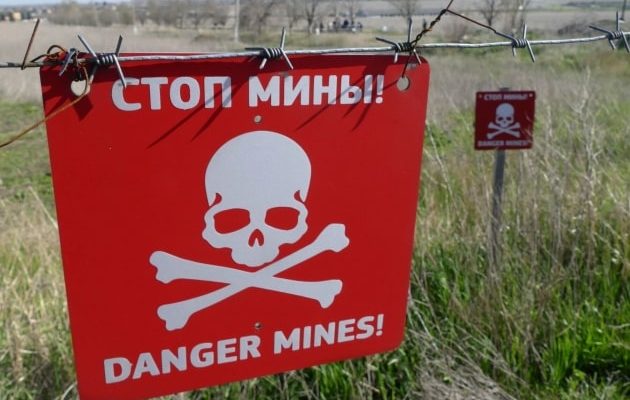14/06/2023 Ucraina (Україна)
“If you ever come across anything suspicious like this item, please do not pick it up, contact your local law and/or enforcement agency for assistance”.
As I write this, I am speeding westward on a train across the fertile plains of Ukraine, on a long journey back home from a business trip to Kyiv. We’re heading to the Polish border town of Przemyśl and from there, back to the U.S. As the Ukrainian countryside flashes by, and in the absence of WiFi to pull me into work on my laptop, I have time to reflect on things I’ve seen during this trip to Ukraine, and to start drawing comparisons and contrasts to my many years in the CIA. During my government career, I saw a lot of terrible things in conflicts in the Middle East. Now, hearing Russian missiles and Ukrainian anti-aircraft fire has triggered unpleasant memories from the dark corners of my mind. The memories of the horrors of conflict, however, came and went in a wave, as they always seem to do, and by force of habit, I directed my thoughts down another path: I started to focus on how some of the U.S. strategic policy failures — the kind that don’t make the critical link between civilian and military instruments of power, as I’d seen in other parts of the world — have been playing out in Ukraine. But before I get to that, let me explain what Ukraine is up against in its next great battle after the long anticipated counteroffensive. Just over that next metaphorical hill, after success on the battlefield, is a mountain of left-behind Russian landmines and unexploded ordnance spread across portions of Ukraine. Ukrainian estimates are that 180,000 square kilometers of land — 30% of Ukraine’s arable land — are unusable because of the danger posed by these remnants of war. And there likely will be more before the war is over. While Ukrainian soldiers and civilians alike are victims of these indiscriminate weapons, my focus is on humanitarian demining, which affects mainly the civilian population and post-conflict development and recovery. Demining under combat circumstances is much different and, in the spirit of full disclosure, I work for a company that does international demining; it’s why I went to Ukraine in the first place, though we are not yet doing work there. The absence of sufficient humanitarian demining resources, for liberated areas, is hurting the Ukrainians the most in the agricultural sector. Many farmers will have to forego planting in large areas this year, because there is not enough demining capacity to clear their fields in time.
Source: themessenger.com
Недбале поводження зі зброєю та вибуховими пристроями, які перебувають у незаконному обігу, продовжує щодня забирати життя наших громадян»
Dear editors, Biography of a bomb is aimed at highlighting the danger caused by unexploded bombs. Moreover, the most important aspect is that we work completely non profit, raising awerness about this topic is what drives us. We apologize if we make use of pictures in yours articles, but we need them to put a context in how findings are done. We will (and we always do) cite source and author of the picture. We thank you for your comprehension





